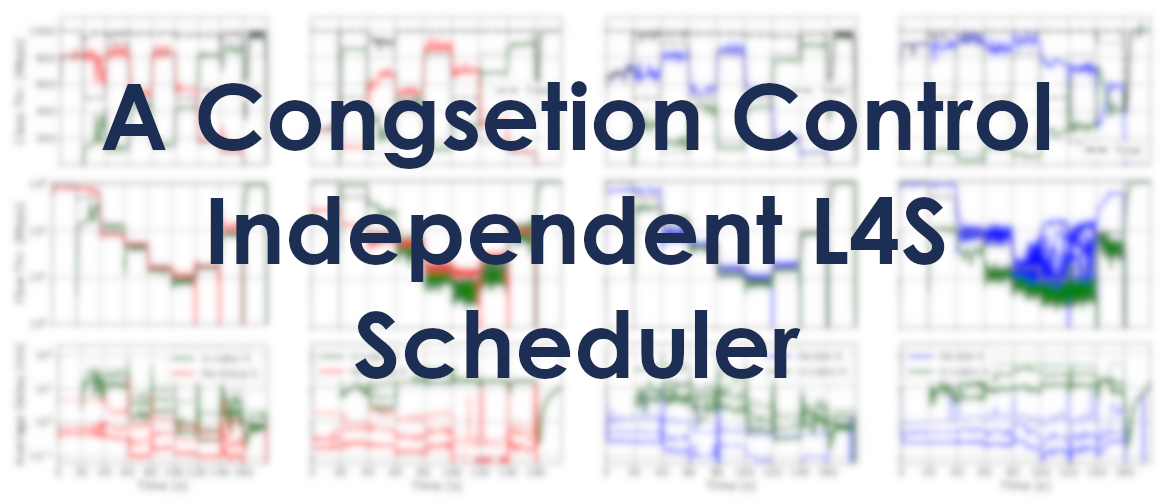Szilveszter Nádas Gergő Gombos Ferenc Fejes Sándor Laki

In the recent years a new Internet service called Low-Latency Low-Loss Scalable-Throughput (L4S) has been proposed to provide scalable sources with ultra-low latency over the Internet, while keeping the delay reasonable for flows with classic loss-based congestion control. There are essential differences in how classic and scalable congestion controls respond to congestion signals, hindering their coexistence. L4S schedulers aim to solve this problem and provide equal share among scalable and classic flows. At the same time both classic and scalable congestion controls are being evolved resulting in unfair resource share among flows using different congestion controls, even within the same congestion control family. The fairness is further degraded by heterogeneous RTTs over the real-world Internet. In this paper, we show that existing L4S schedulers are not able to handle this level of heterogeneity we forecast for the future Internet. To overcome this limitation, we propose Virtual Dual Queue CSAQM that extends the Core Stateless AQM (CSAQM) concept to support L4S requirements while keeping its precise in-network control of resource sharing. We have implemented the algorithm in our DPDK-based AQM evaluation testbed and demonstrated by measurements that it performs well even in those heterogeneous cases where mainstream L4S schedulers are sub-optimal.